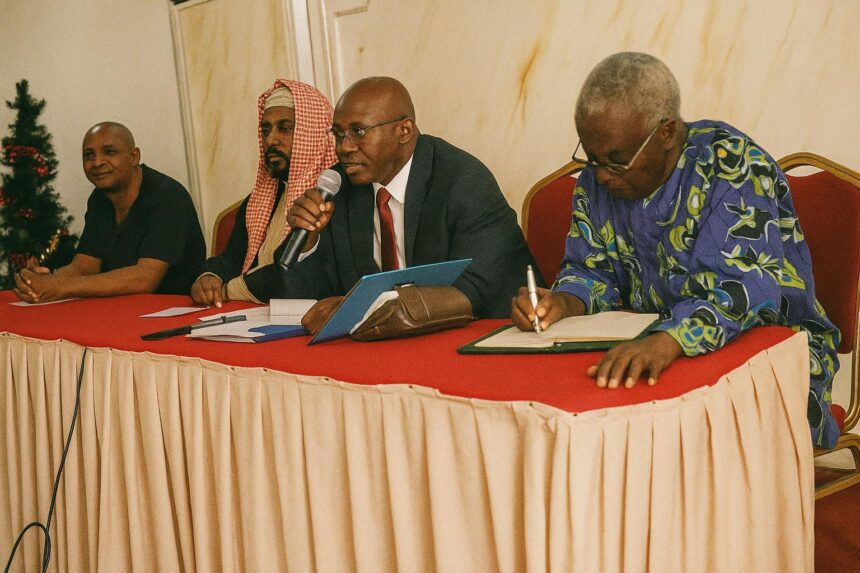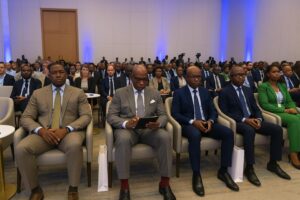Brazzaville’s New Compliance Era Begins
The hushed corridors of Moungali’s City Hall were unusually animated on 24 July 2025 as Basile Jean-Claude Bazébi, Director-General of the Agence de régulation des transferts de fonds (ARTF), addressed a packed audience of money-transfer operators. For two years his institution adopted a pedagogical posture, urging businesses to declare their activities in keeping with national legislation. With that grace period now expired, the regulator has embarked on a more exacting chapter, signalling that leniency has run its course.
Legal Muscles Behind the Shift
Citing Article 12 of the 2025 Finance Law, Mr Bazébi reminded participants that every entity handling remittances must interconnect with the ARTF’s digital platform in real time. Article 13 extends the requirement to wp-signup.php and file monthly transaction declarations, while the newly minted Article 13 bis introduces a formidable sanction regime. Offenders risk administrative closure, permanent loss of operating rights and fines reaching 50 million CFA francs—a sum that, for many informal operators, is tantamount to corporate extinction. The presence of Youssouf Ngolo, President of the Conseil supérieur islamique du Congo, underscored the regulator’s quest for communal endorsement rather than confrontation.
Economic Stakes of the Informal Remittance Network
The Congolese diaspora remitted an estimated 280 million USD in 2024, according to World Bank figures, cushioning households against volatile oil revenues and inflation (World Bank, 2024). Yet as much as 35 percent of these flows circumvent formal channels, depriving the treasury of taxable revenue and clouding monetary statistics (IMF Article IV Consultations, 2024). By forcing operators into the open, the ARTF pursues dual objectives: expanding the tax base while protecting consumers from fraud and money-laundering risks highlighted in the Groupe d’Action Financière’s 2023 mutual evaluation.
Regional Harmonisation and Diplomatic Optics
Brazzaville’s clampdown resonates with continental trends. Nigeria’s Central Bank recently revoked 4,173 bureaux de change licences for non-compliance, while Kenya’s Capital Markets Authority tightened surveillance of mobile-money corridors (Reuters, 2024). In aligning itself with these precedents, Congo-Brazzaville seeks to reassure international partners that its financial ecosystem meets emerging standards on transparency and counter-terrorism financing. Diplomats consulted in the CEMAC sub-region privately note that harmonised oversight could ease cross-border settlements and strengthen collective bargaining with global payment platforms.
Balancing Enforcement With Financial Inclusion
Sceptics warn that steep fines might inadvertently drive small operators further underground, limiting rural access to remittance services. The ARTF counters that its portal, launched in partnership with the Congolese Agency for the Information Society, reduces registration fees by 60 percent and offers a one-stop interface for licensing. According to preliminary data released at the Moungali meeting, 412 micro-operators have already migrated to the formal registry since January, recording a 27 percent rise in documented transactions. By substituting opacity with measurable growth, authorities aim to demonstrate that compliance can in fact be profitable.
Strategic Dividend for Fiscal Resilience
Congo-Brazzaville’s 2025 budget projects a non-oil revenue increase of 0.8 percent of GDP, a target the Ministry of Finance explicitly links to the ARTF’s crackdown. Analysts at the regional BEAC branch agree that enhanced traceability of remittances could also improve foreign-currency management, alleviating seasonal pressure on the exchange rate. For President Denis Sassou Nguesso’s administration, the initiative dovetails with a broader agenda of domestic resource mobilisation applauded by development partners.
A Calibrated Path Forward
As the sun set over Brazzaville’s skyline, Mr Bazébi’s closing remark captured both resolve and restraint: “We favour inclusion, yet the law is our compass.” The coming months will test how deftly the ARTF balances deterrence with dialogue. For now, the message is unequivocal: the window for voluntary compliance has closed, and Congo-Brazzaville is stepping boldly into an era where financial opacity is no longer tolerated but taxed—or terminated.



















